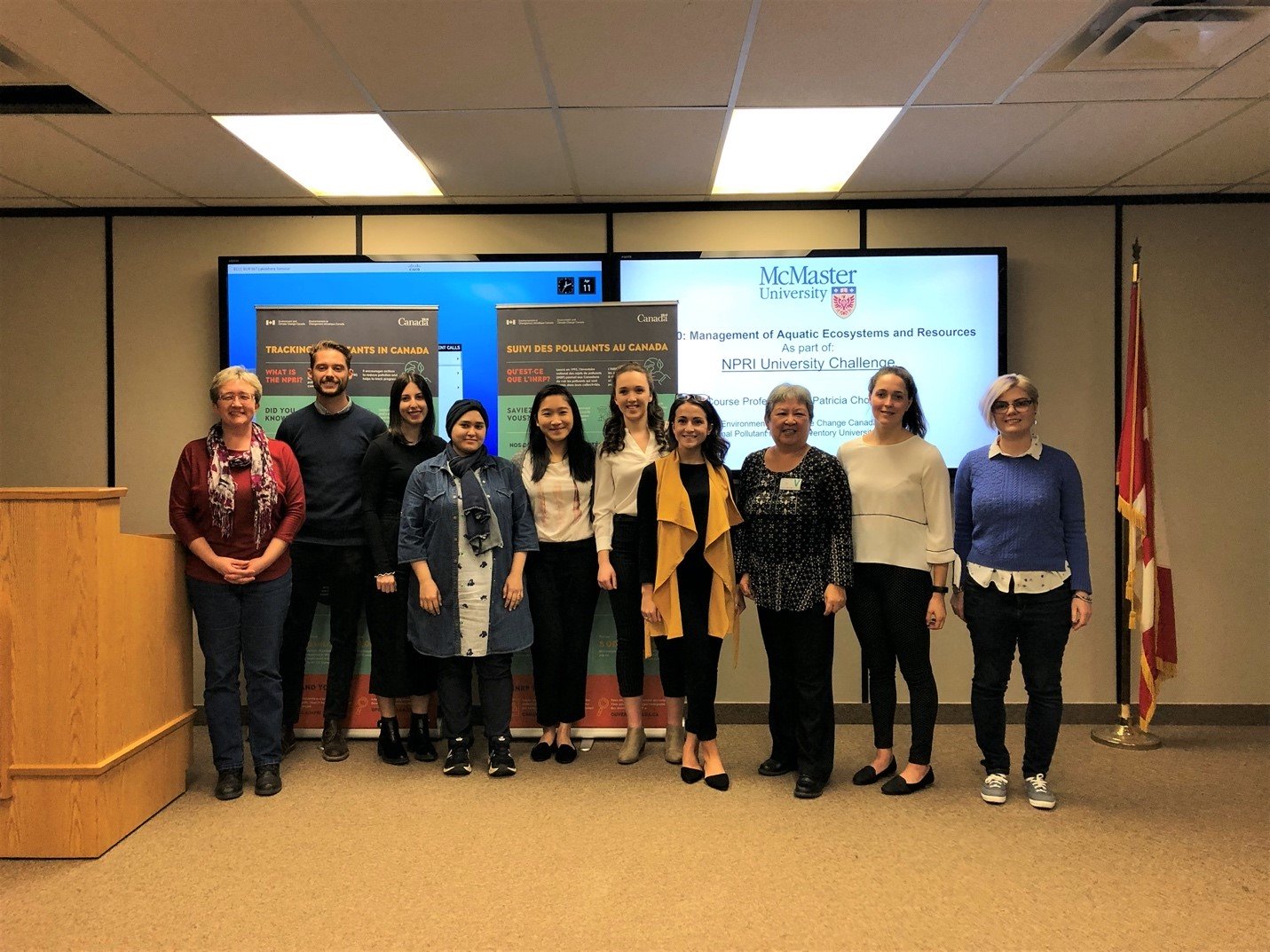McMaster steps up to NPRI University Challenge

The National Pollutant Release Inventory (NPRI) is Canada’s public inventory of pollutant releases, disposals and waste transfers for recycling. It collects information on facility-based releases to air, water and land, as well as disposals and transfers, of over 320 substances. The NPRI is a key tool for identifying and monitoring pollution sources in the country and a starting point to better understand how pollutants are entering the Canadian environment.
As the agency responsible for hosting NPRI, Environment and Climate Change Canada (ECCC) launched the NPRI University Challenge in fall of 2018. It aimed to increase awareness of NPRI data within academic communities and to expose new audiences to NPRI data, tools, and analysis. Universities were challenged to generate innovative products, activities, recommendations or research that improves the understandability, accessibility and usability of NPRI data in terms of its overarching goals of identifying pollution prevention priorities, supporting assessment and risk management of chemicals and air quality modelling, helping develop targeted regulations for reducing releases of toxic substances and air pollutants, and encouraging actions to reduce release of pollutants into the environment.
ECCC invited proposals from McMaster to build a portfolio of practical and replicable projects that benefit NPRI data users. Dr. Pat Chow-Fraser, Department of Biology, developed a template for her graduate course, Management of Aquatic Ecosystems and Resources. In discussions with ECCC and Health Canada scientists, they identified three substances of interest in effluent of wastewater treatment facilities. “Health Canada was interested in knowing the effects of three drugs: Metformin and Gliclazide, which are common prescription drugs for patients with Type 2 diabetes, and Fluoxetine, marketed as Prozac, which is one of the most prescribed antidepressants in the world.” said Prof Chow-Fraser.
The grad students had two main tasks. First, they were asked to conduct a comprehensive literature review of these drugs according to specific guidelines provided by Health Canada, particularly with respect to effects of aquatic biota and the distribution of these drugs in surface water. Secondly, they were asked to assess the effectiveness of different treatment processes on the concentration of Metformin and Fluoxetine in effluent of seven sewage treatment facilities across Canada. During the course, we determined that it was also feasible to simulate the amount of Metformin and Fluoxetine in effluent from the wastewater treatment plants in the Grand River watershed.
The University and students received national recognition and promotion on project activities and was invited to make a presentation on major research findings to ECCC and Health Canada. “I had a great experience as a student in this course.” says Alana Tedeschi, who was one of seven graduate students who took the course in 2019. “Accessing, analyzing and interpreting real Canadian data and presenting our findings to government scientists gave me a lot of confidence as a graduate student. I also enjoyed learning about freshwater contaminants outside the scope of my thesis and understanding how they enter and affect our aquatic ecosystems.”
“I had a very positive experience working with NPRI staff to develop the theme and how to conduct the course” said Chow-Fraser. “I think this format works well for a class of 6-10 students with diverse background. Next year, I will have a smaller number of students and would probably need to develop a different approach.”
The final report can be viewed here: 2019 McMaster Final report for the NPRI University Challenge
Related News
News Listing
December 9, 2024
December 9, 2024

McMaster Brighter World ➚
McMaster researchers uncover potential treatment for rare genetic disorders
News
December 9, 2024
